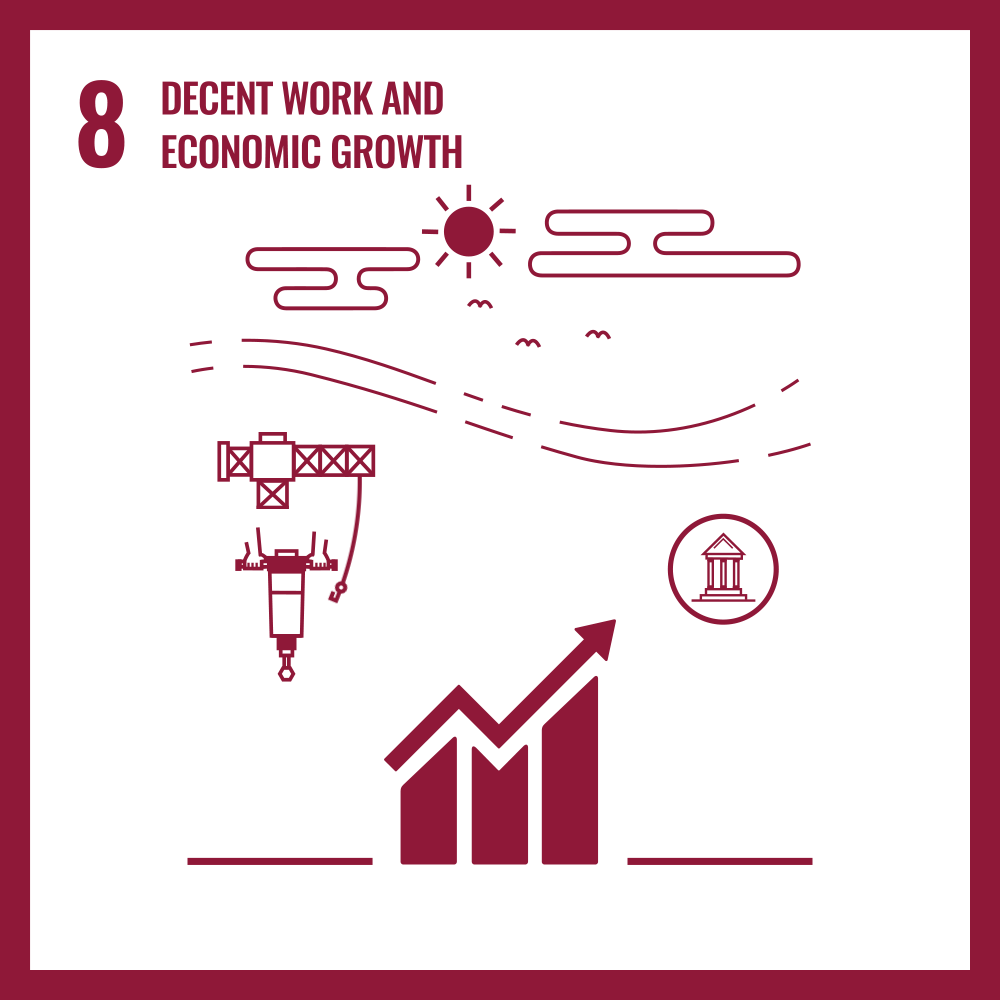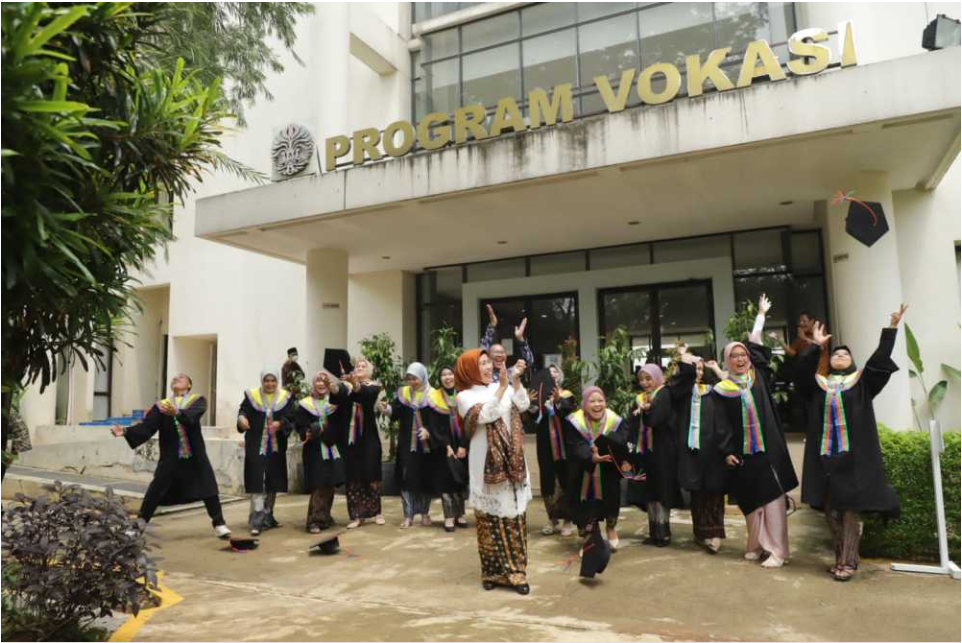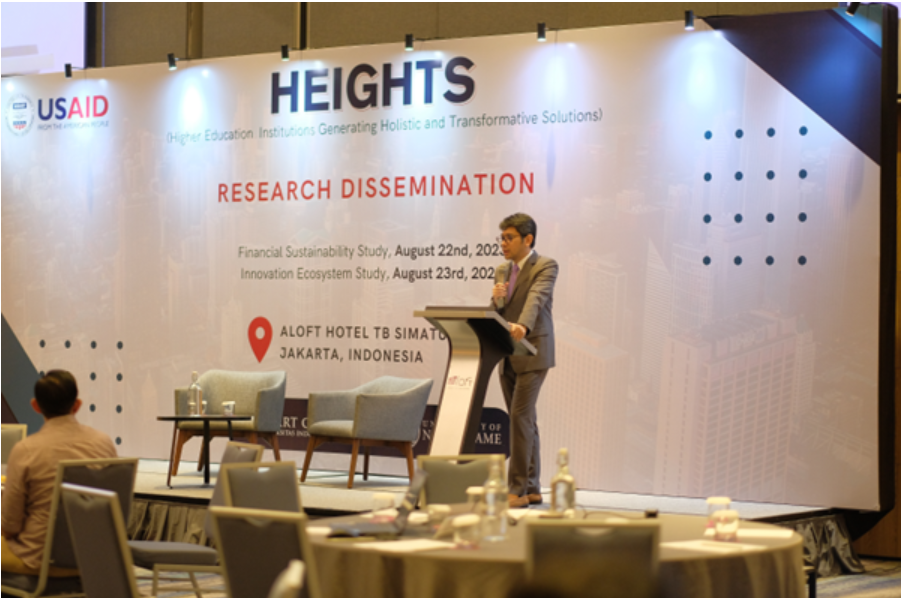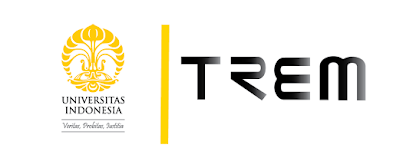sustainable development goal 8
Having a job doesn’t ensure escape from poverty. Quality job opportunities and stable employment are essential for societal progress. Yet, challenges like unstable jobs and modern slavery threaten sustainability. Colleges can pave the way by promoting fair employment and innovative teaching.

Universities are pivotal in cultivating ‘Employment practice’ for SDG 8, fostering environments where future leaders learn the importance of decent work and economic growth. They commit to equipping students with the knowledge and ethics necessary to ensure fair labor standards and sustainable business practices, thereby driving positive change in the global economy.
Employment Practice Living Wage
The Universitas Indonesia (UI) staunchly upholds the principles of fairness and equality in managing wage policies for all staff and faculty, reflecting a high commitment to their professionalism and well-being. In support of these principles, UI has implemented a decent wage standard, also known as the regional minimum wage, for all its employees, including civil servants (PNS) and those who are not. This recognition reflects the values of fairness and equality within the campus work environment. In executing its wage policy, UI follows governmen t regulations related to the remuneration system. The Rector’s decision at the Universitas Indonesia has established a foundation for implementing the 3P remuneration system, which stands for Pay for Person, Pay for Position, and Pay for Performance. This approach demonstrates that UI offers fair appreciation to its employees and faculty based on three main aspects.
First, the principle of Pay for Person refers to recognizing individual competence. Each employee and faculty member is valued according to their expertise, experience, and skills. This recognition is based on individual ability and contribution to the university’s advancement. Second, Pay for Position illustrates wages that correspond to the responsibilities of the position or role held by an employee or faculty member. This wage reflects the level of responsibility and the strategic role in carrying out university functions. Lastly, the concept of Pay for Performance creates incentives for employees and faculty to exhibit their best performance. This approach also rewards achievements and tangible contributions to the university’s goals and mission. By implementing this system, UI encourages staff members to excel and contribute maximally to achieving the university’s vision and mission.
Universitas Indonesia Employment Practice: Living Wage
The Faculty of Psychology at the Universitas Indonesia, as a part of the university, also prioritizes the principles of employee welfare. Fair wages, recognition of labor unions, anti-exploitation policies, and a system of appeals have been well implemented there. All these policies are designed to create a fair and equitable work environment without discrimination based on ethnic background, religion, race, gender, or physical condition.
A number of regulations have been issued to ensure the implementation of these fair wages. Among them is the Rector’s Decree of the Universitas Indonesia No. 0264/SK/R/UI/2014 on Salary Regulations and Employee Welfare for Permanent Staff of UI and the Rector’s Regulation Number 19 of 2021 on the Attendance System for Educational and Administrative Staff at UI. These regulations guarantee the rights of employees, such as food allowances, transportation, and overtime pay.
Not only for staff, UI has also established specific regulations for faculty members, both permanent and non-permanent. This is governed by the Rector’s Decree Number 054 of 2017 on the Remuneration System for Permanent Lecturers at the Universitas Indonesia. Through a number of decisions and regulations issued, UI ensures that all faculty members receive proper rights and welfare commensurate with their contributions and roles in higher education in Indonesia.
The Universitas Indonesia (UI) proves its commitment to workers’ rights and equality by recognizing the importance of labor unions, including the rights of female and international employees within the campus environment. In performing this function, elected members of the Board of Trustees (Majelis Wali Amanat, MWA) act as representatives who articulate the voices of UI employees and faculty members. The decisions and aspirations they convey hold significant weight in shaping university policies. Additionally, UI grants all faculty and staff the freedom to form informal organizations based on their interests and hobbies. The Faculty Club facilities are a gathering place for UI community members wishing to participate in group activities. This freedom reflects the spirit of inclusivity and diversity valued by UI.
UI’s Human Resources (HR) management also reflects the importance of equality and workers’ rights. The university steadfastly upholds principles of professionalism, fairness, and equality in all aspects. Discrimination in the UI work environment is not based on ethnicity, race, religion, or gender. These principles are firmly held by UI and form the foundation for establishing HR policies. UI’s commitment to equal rights also includes protections for individuals with physical disabilities. In Article 2 of the Rector’s Decree number 33 of 2018 on Human Resource Management of the Universitas Indonesia, UI affirms the right of every individual, including those with physical disabilities, to work without experiencing discrimination. This assures that UI is an inclusive and welcoming environment for all its members.
Furthermore, Article 44 of the same Rector’s Decree highlights the importance of active participation by workers in university management. The Board of Trustees, as representatives of the employees, plays a central role in providing recommendations and advice to the rector on various aspects of university management, including workers’ rights and welfare.
As part of UI’s commitment to fulfilling the needs of its employees, each faculty has a cooperative. For example, UI’s Employee Cooperative of the Faculty of Psychology regularly holds Annual Member Meetings (Rapat Anggota Tahunan, RAT) to discuss financial reports and plans. The RAT serves as a forum for cooperative members to provide feedback and suggestions for the cooperative’s development actively. At the 2022 Fiscal Year RAT, the Employee Cooperative of the Faculty of Psychology at UI presented an accountability report focused on the savings and loan business. The report outlined various challenges faced, including financial issues and the availability of business space. Despite these challenges, the cooperative strives to improve its members’ services. The Employee Cooperative of the Faculty of Psychology at UI is determined to continually enhance services and develop new ventures for the cooperative’s sustainability and its members’ welfare. This reflects UI’s commitment to providing the best for its entire community at the university and faculty levels.
Annual Report of the Faculty of Psychology UI Employee Cooperative for the Fiscal Year 2022
Employment Policy on Discrimination
The Universitas Indonesia (UI) is not only recognized as one of the leading educational institutions in Indonesia but also as an institution that practices the highest standards of work ethics. In every aspect of its operations, UI has a solid commitment to the prevention of modern slavery, human trafficking, forced labor, and the involvement of children in labor. These ethical principles are the foundation that underlies all policies and Human Resources (HR) practices on this campus.
In Rector’s Decree No. 33 of 2018, UI explicitly states its commitment to protecting the rights of individuals with disabilities. Article 2 of this decree underscores the importance of safeguarding the rights of individuals with disabilities, ensuring they are treated fairly and equally without any form of discrimination. UI believes that every member of society, including those with disabilities, has equal rights to education and employment opportunities. By recognizing the values of justice and dignity, UI provides protection and support to each individual within its campus environment. Moreover, Article 62 of Rector’s Decree No. 33 of 2018 protects all workers at UI from discrimination and harassment in the workplace. UI ensures that each staff member, lecturer, and other employees are treated fairly, regardless of their background. This decision reflects UI’s commitment to equality rights and anti-discrimination in the workplace.
Rector’s Decree Number 33 of 2018 on Human Resource Management at Universitas Indonesia
The vision of the Universitas Indonesia (UI), which regards each individual as a valuable asset, is reflected in its daily practices. The university provides equal opportunities for every member of its community to grow and contribute. Within a fair and equitable work environment, staff, lecturers, and students feel supported and valued. All members of the UI community can focus on their academic achievements and positive contributions without concerns of discrimination or harassment.
Employment Policy Modern Slavery
The Universitas Indonesia (UI) firmly upholds its commitment to creating fair, dignified, and ethical employment. In an ever-evolving and complex world, UI recognizes the importance of having solid and detailed policies to address sensitive issues such as forced labor, modern slavery, human trafficking, and child labor. This is not merely a matter of discourse or ideology; these values are reflected in the university’s official document, Rector’s Decree No. 33/2018. This decree is not just an internal guide but a strong foundation that directs every unit and faculty at UI in their operations, especially regarding human resource management.
UI emphasizes implementing appropriate and ethical age-based employment policies during employee recruitment. This means that the selection process for prospective employees focuses not only on academic qualifications and skills but also considers the ethics and moral values held by the candidates. UI ensures that every individual joining the UI community is of high integrity with the courage to speak up and respect human rights. The Rector’s Regulation of UI Number 33 of 2018 on the Human Resource Management of Universitas Indonesia is a significant document summarizing the standards and procedures for human resource management at UI. This document contains general guidelines and outlines concrete steps to be taken in various employment-related situations. From the employee recruitment process to the management of daily attendance, UI has clear and transparent guidelines to ensure that all employee rights and obligations are well-maintained.
Rector’s Decree Number 33 of 2018 on Human Resource Management at Universitas Indonesia
Meanwhile, the Rector’s Regulation Number 19 of 2021 on the Attendance System for Educational and Administrative Staff at the Universitas Indonesia details the attendance and other provisions for educational and administrative personnel at the university. Attendance at the workplace is not merely a physical sign-in but reflects the employee’s engagement and contribution to the work environment and the university community. Within this framework, UI recognizes the importance of empowering employees to develop themselves through education and training, ensuring they possess the up-to-date skills and knowledge required to perform their duties efficiently and effectively.
UI’s consideration of employment goes beyond the perspective of rights and obligations and extends to the perspective of individual welfare and development. Through various employee development programs, UI provides opportunities for staff and lecturers to continue learning and growing. The university encourages employees to attend courses, seminars, and other training relevant to their fields of work. This creates a work environment that supports professional and personal growth, ensuring that UI employees are not only part of a significant educational institution but also have the potential to become future leaders in various sectors. UI’s commitment to fair and dignified employment is reflected in the university’s efforts to support diversity and gender equality. UI proactively promotes women’s participation in academia and research, creating equal opportunities for all individuals, regardless of gender. Diversity is a value UI upholds and a strength that enriches discussions and collaborations on campus.
Employment Practice Equivalent Rights Outsourcing
In a complex work environment, the Universitas Indonesia (UI) deems it important to provide fair and equal treatment to all members of its community, including workers from third-party or outsourcing agencies. UI acknowledges that the rights and protections afforded to outsourced workers should be on par with those provided to permanent workers at the university. UI has established specific policies governed by the Rector’s Decree Number 33 of 2018 on the Human Resource Management of Universitas Indonesia as a tangible form of this commitment.
Within this policy, UI sets clear and firm standards regarding the rights and obligations of outsourced workers. Regarding wages, UI ensures that outsourced workers receive fair compensation commensurate with their work. Moreover, UI asserts that outsourced workers have the same social security, health, and occupational safety rights as permanent workers. The university ensures that all workers receive appropriate protection regardless of employment status. UI also pays special attention to sensitive labor issues such as working hours, leave, and human rights in the workplace. UI ensures that outsourced workers have the same rights regarding reasonable and fair working hours and the right to take leave in accordance with applicable regulations. Diversity and equality are principles held in high regard by UI; therefore, the university guarantees no discrimination based on gender, ethnicity, religion, or sexual orientation in employment management on campus.
Furthermore, UI also implements an objective and fair performance evaluation system for outsourced workers. Performance assessment is based on work achievements, commitment, and the worker’s contribution to the university’s goals. With this approach, UI ensures that high-performing outsourced workers receive appropriate appreciation and recognition for their contributions. UI also continuously opens effective communication channels between management and outsourced workers. This allows workers to voice their aspirations, complaints, or suggestions about working conditions and the work environment. UI ensures that every voice is heard and taken seriously so that any issues can be promptly addressed and a fair solution can be found.
Rector’s Decree Number 33 of 2018 on Human Resource Management at Universitas Indonesia
One tangible manifestation of this policy implementation is the special program the Universitas Indonesia (UI) faculties run. For instance, UI’s Faculty of Humanities (FIB) implements a special appreciation program for all outsourced members during the Idul Fitri holiday celebration. This initiative involves the distribution of gifts and vouchers as a token of gratitude and reinforcing the sense of togetherness and celebration within the university community.
Furthermore, to ensure the welfare rights of outsourced workers, the Faculty of Humanities at UI has also issued a special policy per the Dean’s Decree of the Faculty of Humanities UI Number 3892/UN2.F7.D/HKP.02.04/2018 regarding the Provision of Health Allowances for Educational Staff within the Faculty of Humanities at UI. With these policies, UI and the Faculty of Humanities at UI demonstrate a concrete commitment to upholding the rights and welfare of all community members.
Employment Policy Pay Scale Equity
The Universitas Indonesia (UI), as a leading educational institution in Indonesia, takes the equality of rights and opportunities for all members of its community very seriously. In this context, UI has established a robust policy regarding salary equality through the Rector’s Decree Number 33 of 2018 on the Management of Human Resources at Universitas Indonesia. This policy includes a commitment to measure and eliminate pay disparities based on gender, ensuring that all employees, regardless of gender, receive fair and equitable pay in accordance with their contributions and performance.
As a higher education institution employing various types of employees, both civil servants (PNS) and non-PNS, UI complies with government regulations related to employment. In this regard, UI ensures that the salary and remuneration policies applied follow the government’s standards. One approach UI takes is implementing the 3P remuneration system, which includes Pay for Person, Pay for Position, and Pay for Performance. This system is designed to ensure that salaries received by UI employees are not based on gender but on competence, responsibility, and performance. In this context, UI eliminates wage discrimination based on gender by ensuring that every employee, male or female, receives equal recognition for their work and contributions. Applying this principle creates an inclusive and fair work environment and motivates all employees to reach their fullest potential without being hindered by gender differences.
Furthermore, UI also ensures that the salary policies applied are in accordance with the Regional Minimum Wage set by the government. By comparing employee salaries with the regional and higher education industry standards, UI ensures that its employees receive appropriate and fair compensation, creating economic stability for them and their families.
Regarding employee welfare, the Universitas Indonesia (UI) not only complies with the government’s obligations through the BPJS Kesehatan (Healthcare and Social Security Agency) program but also provides additional welfare programs such as supplementary health insurance and welfare assistance. At the faculty level, the salary structure applied is based on position and level in accordance with the UI Rector’s Decree Number 1264/SK/R/UI/2014 concerning Regulations on Salary and Welfare for Permanent Employees at the Universitas Indonesia. This ensures that employee compensation is determined without gender bias, affirming UI’s commitment to gender equality and fair wage practices.
Faculty of Psychology: Employment policy on pay scale equity
Tracking Pay Scale for Gender Equity
The Universitas Indonesia (UI), as a higher education institution responsible for nurturing the nation’s future generations, fully understands the importance of gender equality in creating an inclusive and fair work environment. Gender equality is a social issue and a fundamental human right that must be respected and guaranteed in every aspect of life, including the workplace. Therefore, UI takes concrete steps to ensure that all employees, regardless of gender, are treated fairly and equally, including in remuneration.
The UI Rector’s Decision No. 33/2018 is a principal foundation in realizing UI’s commitment to gender equality within the employees’ salary scale. In this policy, UI underscores the importance of measuring and monitoring the salary scale to ensure no gender-based discrepancy. Implementing this policy is supported by UI’s 3P remuneration system, consisting of Pay for Person, Pay for Position, and Pay for Performance. This system leads to the principle that an employee’s salary should reflect their qualifications, the responsibilities of their position, and individual performance, not determined by gender. Thus, UI ensures that the salary received by each employee is commensurate with their contribution to the university without any detrimental gender bias.
In setting the salary scale, UI also considers the Regional Minimum Wage established by the government. This approach ensures that the remuneration provided by UI is within a framework recognized by government regulations, leaving no room for gender discrimination. In this regard, UI not only complies with the prevailing rules but also demonstrates its social responsibility as an upright and humanity-valuing institution of higher education. Beyond its commitment to gender equality in salaries, UI also pays serious attention to the overall welfare of its employees. While BPJS Kesehatan is a government-regulated obligation, UI provides additional employee welfare programs. One is supplementary health insurance, which provides extra protection for employees and their families. This step shows UI’s care for the physical well-being of its employees but also gives them security and certainty when facing health risks.
It is important to note that gender equality is not only the responsibility of the government or government institutions but also every individual and organization, including universities like UI. Gender equality creates a healthy, productive, and harmonious work environment where employees feel valued and supported in achieving their full potential. Therefore, UI continues to commit to strengthening gender equality practices, ensuring that every member of the UI community, regardless of gender, can fully participate in learning, research, and community service. By prioritizing gender equality in the salary scale and all aspects of employees’ lives, UI proves that higher education is not just about providing academic knowledge but also about creating a fair, inclusive, and supportive environment for all individuals. As a leading educational institution, UI sets an example for others, promoting gender equality in Indonesia’s higher education sector. In its vision to become a world-class university, UI is pursuing academic excellence, justice, and equality for all.
Employment Practice Appeal Process
The appeal mechanism for employee rights and salaries at the Universitas Indonesia (UI) reflects UI’s commitment to maintaining fairness, transparency, and employee satisfaction. The Rector’s Decree number 33 of 2018 on Human Resource Management at the Universitas Indonesia, which details this procedure, forms the primary foundation for each faculty at UI to implement the established Standard Operating Procedure (SOP). The main goal is to provide a space for employees and lecturers to file appeals when they perceive discrepancies or injustices in their rights and salaries.
Within the scope of UI, the appeal procedure is designed to ensure that any issues that arise can be addressed swiftly and accurately. For instance, if a lecturer believes there has been an error in the calculation of their remuneration, they can follow the established steps to obtain adequate clarification and resolution. This process assures employees that their rights are valued and that they have the means to protect those rights.
Each faculty at UI has a specific SOP governing this appeal procedure. This SOP is designed to facilitate employees in filing complaints or requests for clarification. With clear guidelines, employees can engage in the process with the confidence that their grievances will be taken seriously and addressed promptly. The existence of the SOP also assists in directing employees to submit their complaints to the appropriate parties, ensuring that issues are handled by those with the relevant authority and knowledge.
Beyond providing certainty to employees, this appeal mechanism also reflects the principles of good governance that are the fundamental basis for UI. Transparency, accountability, and fairness are highly upheld in every action and policy at UI. By presenting a structured and orderly appeal procedure, UI reaffirms its commitment to these values. Moreover, this mechanism further benefits UI as a higher education institution. By listening to and responding to employee complaints, UI can identify potential improvements in existing policies and procedures. This allows UI to continually evaluate and enhance, ensuring that every implemented policy meets fairness and employee satisfaction standards.
The process reflects the importance of open and constructive dialogue between the university and its community. Employees who feel listened to and valued are more motivated and connected to their institution. This improves their job satisfaction and positively impacts the quality of services the university provides to students and the general public. In the face of constantly changing work environment dynamics, this appeal mechanism demonstrates that UI is a responsive and adaptive institution. By allowing employees to express their concerns, UI can quickly respond to changes and adjust their policies per employee needs and expectations. This flexibility is essential in maintaining the sustainability and well-being of UI’s work environment.
In a broader context, this appeal mechanism also reflects UI’s commitment to ethical standards and fairness in higher education. As one of the country’s leading educational institutions, UI delivers quality education and creates a fair and inclusive work environment. By building a system that supports equality and fairness, UI sets an example for other educational institutions and contributes to a more just and equitable society. In conclusion, UI’s appeal mechanism for employee rights and salaries is a highly positive and progressive step. It provides certainty and fairness to employees and reflects UI’s commitment to good governance, ethics, and justice. By strengthening this mechanism and continuing to listen to its community’s voice, UI can ensure that it remains a center of higher education that is integral, inclusive, and oriented toward justice.

A total of 13 students who won the Serang Regency Government Vocational scholarship at the University of Indonesia graduated and immediately went to work at the Dr. Drajat Prawiranegara Hospital (RSDP).

Smart City Universitas Indonesia (UI) collaborated with the University of Notre Dame and the United States Agency for International Development (USAID) to conduct research on the role of universities in creating a dynamic agricultural innovation ecosystem in West Java.

The Faculty of Social and Political Sciences UI, as an implementation of the Tri Darma of Higher Education, organizes integrated social programs through sports activities. It is a Badminton Championship event organized by FISIP which is attended by 511 badminton athletes.
